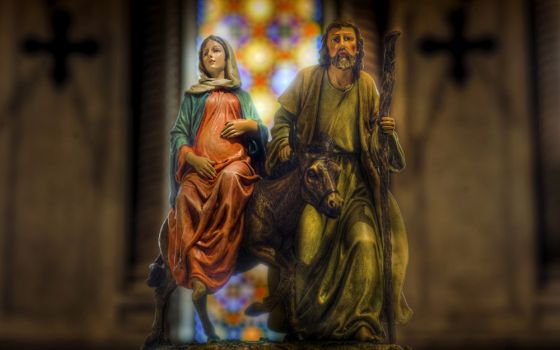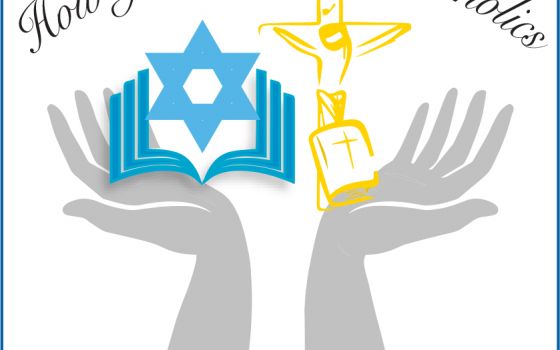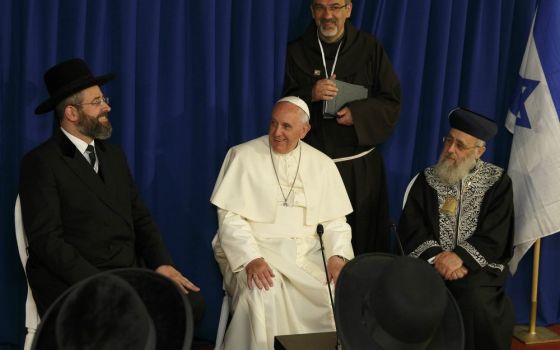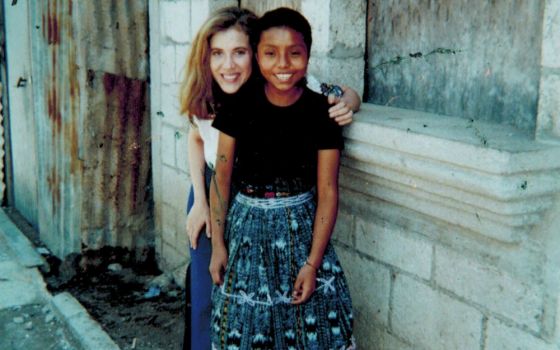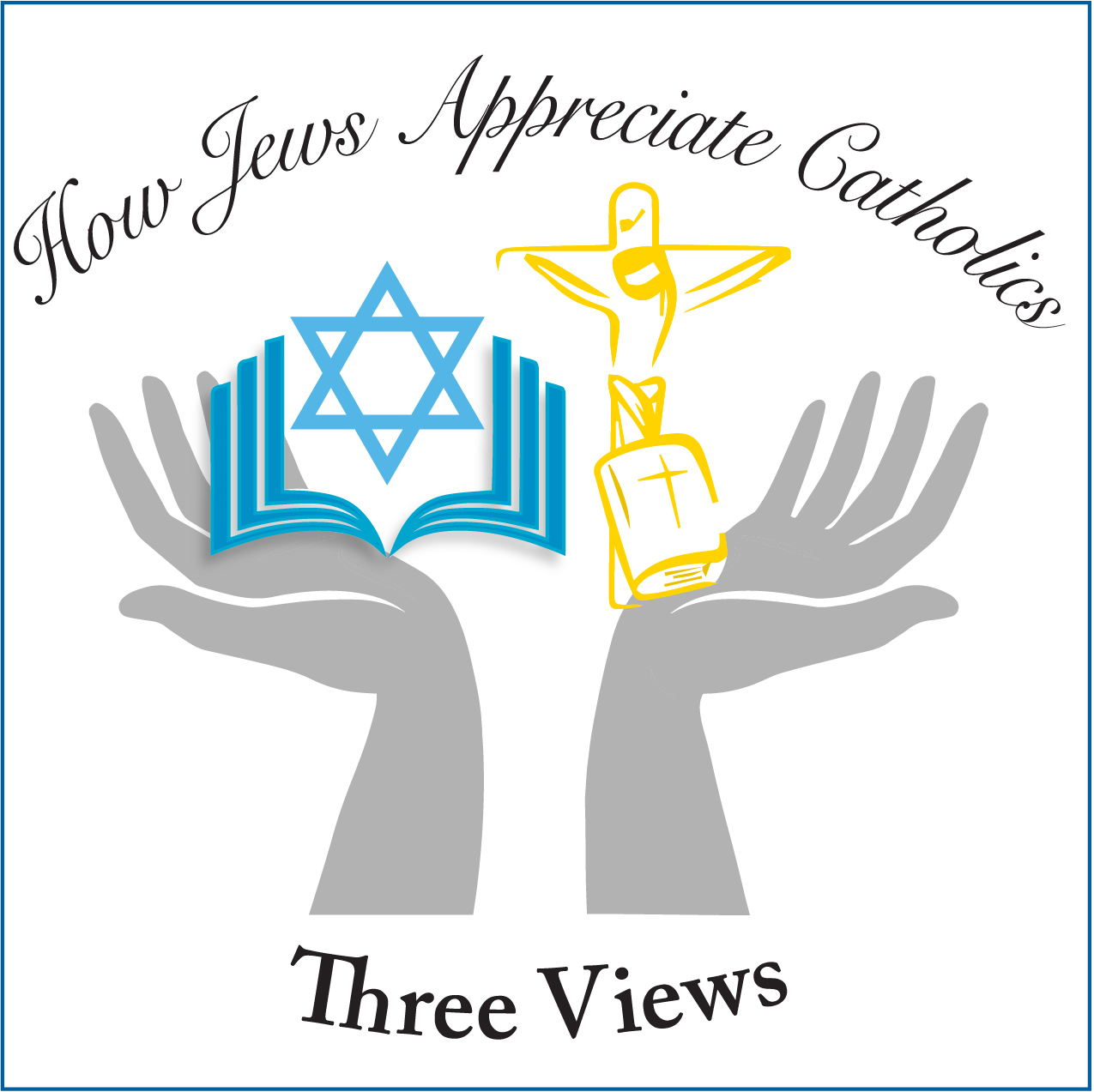
Editor's note: Executive editor Tom Roberts aims to help readers understand how recent news stories fit together. NCR Connections will provide guideposts and markers to help lead readers through key issues and stories. See previous posts here.
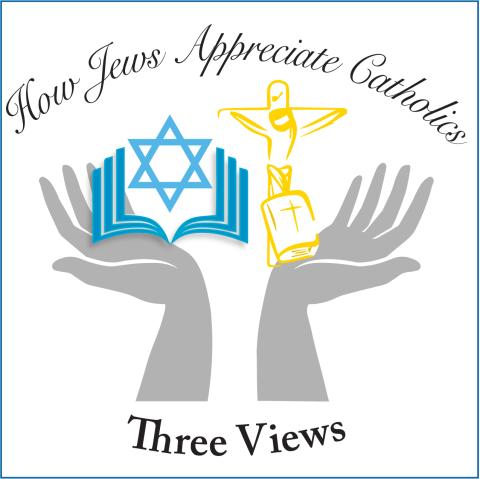
Tomorrow we'll begin posting a series under the heading "How Jews Appreciate Catholics: Three Views."
Since it is a bit offbeat, it might be best to explain how it developed. I was reading The Divine Dance: The Trinity and Your Transformation by Franciscan Fr. Richard Rohr and Mike Morrell. It is a contemplative, even mystical at times, approach to understanding the relationship amid the Godhead that we of a certain age learned as a somewhat static division of persons and roles, each with a designated "to do" list.
That thinking has long infiltrated our religious instincts and practice. Rohr's persistent work for years now has been to counter "dualistic thinking" in religion and culture. "[W]e tend to dwell in extremes," write Rohr and Morrell. "In much of the West today, it's either intense individualism (in both its progressive and conservative forms) making the common good a lost and impossible ideal; or people live in mindless collectives, tribalism, and groupthink — where too many people lack any healthy autonomy or personal individuation (again in both progressive and conservative formats, which shows us this common way of seeing offers us two bogus criteria for truth)."
The trinitarian dynamic, of course, offers a different model, perforce non-dualistic, and a way out of either our stuck tribalisms or blind individualism. And it set me to thinking about our Catholic community and the amount of head-butting that's occurred in recent decades — progressives vs. traditionalists; or conservatives vs. liberals; those who like this or that pope and those who don't; and so on.
I wondered, given all of the dualistic face-offs we've engaged in recent years, if there was a third party who could be invited into our dance to change the dynamic, if only momentarily. The term "Jews" came to mind and I followed the thought a bit further and began to understand there might be some logic to it. It is reasonable to say there probably is no group on the planet that has more reason to hate the Catholic Christian community than the Jewish community. After all, if we claim our line all the way back to the beginning we understand that, though born of the Jewish community, we were the ones most responsible, over centuries, of constructing the animus that almost destroyed that people.
Yet, in recent decades, and especially since the Second Vatican Council document Nostra Aetate, things have shifted rather dramatically. That document was the unassailable sign to the Catholic community and the world beyond that the church could come to a new understanding of long-held "truths." It is not a small matter that Nostra Aetate was not only upheld but advanced in significant ways by St. John Paul II, a Pole who as pope boldly embraced the truths of other religious traditions, particularly Jews, and by his successor, the German Pope Benedict XVI. I have known some Jews who in recent decades have approached Catholicism with a certain warmth and respect. How did they overcome our centuries of hatred? What do they see in us now that is remotely attractive?
So I asked three Jewish writers, an art critic, a journalist and a rabbi, to take on that question. What makes us approachable today, given our history and particularly this moment when we have revealed the worst of ourselves in the ongoing sex abuse scandal? Perhaps, I thought — and said to them — you see something in us, in our art, in our tradition, in our work and ministries, that we might even overlook today given the tensions and embarrassing scandals within our community. Perhaps you can point to something that even intellectual opponents among us can look at and say: "Yes, that lies beyond our disputes. That we can both agree on."
I also thought it would be a salutary exercise for us, accustomed as we are to giving ourselves a rather exalted place in salvation history, to accept graciousness from a few representatives of a people that we so long were schooled to despise, even in our prayers.
These essays are not intended as an antidote to our disagreements. They are not intended as a pathway to a place where we all get along. This is not a quest for cheap grace on the way to some ecclesial happyland.
I'd suggest reading them as points of reflection, as a place to stop amid the contretemps to rest and refocus and perhaps take in a bit of fresh air and a different perspective.
I'd also suggest viewing them as a triptych (even though they'll appear one at a time) beginning with the essay of Menachem Wecker of Washington, D.C., as the centerpiece. Wecker, a quite accomplished young art critic whose work appears regularly in these pages also happens to spend countless hours in Catholic venues and sitting through Catholic rituals, pondering the ancient beauty — and often its accompanying ironies — of our community.
Julia Lieblich, a Chicago journalist and author, has written beautifully of women religious and their heroic lives and has become deeply engaged in the life of a Catholic family in Guatemala. She writes powerfully from personal experience of her encounters with Catholic realities that, for many of us, might be well outside our normal understanding.
The final piece in the series is by Rabbi James Rudin, who spent years as the American Jewish Committee's Interreligious Director and Senior Interreligious Adviser. He describes himself as "a professional Catholic Watcher."
We'll follow the series with an enlightening essay, "Why are we at each others' throats? Healing the polarization in our church," by Maureen K. Day, who teaches at the Franciscan School of Theology.
Finally, we'll contribute some commentary to tie together the strands of this exploration. Just keep in mind, this is not a project that sees its end as figuring out ways to agree on topics about which people in the community have deep and significant disagreement. It is, instead, a project that takes a longer look and perhaps achieves a deeper appreciation of those things that bind us even as we disagree.
Advertisement




